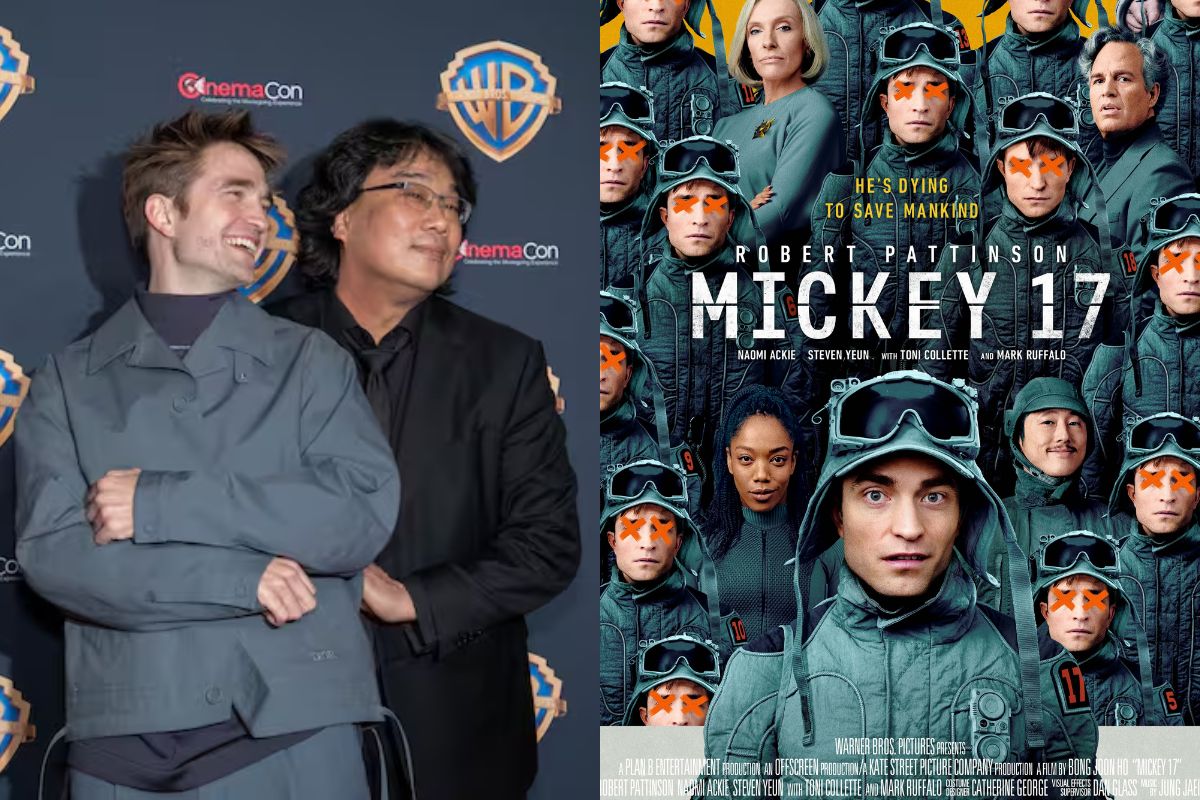
Published: : March 9, 2025, 10:37 PM

Bong Joon-ho’s shrill science-fiction satire carries our political present into the future and shoots wildly around in space and time, but unfortunately, overshoots too often.
‘Real human flesh is cheaper than a machine. It’s the axiomatic truth of our times.’
– Richard K. Morgan, Altered Carbon
Almost six years have passed since his huge success 'Parasite' (2019), which won more than 250 film and festival awards, transcended all genres and criticised pretty much everything about our modern world, and the expectations for Bong Joon-ho’s new film are naturally correspondingly high. As in his ‘classic’ 'Snowpiercer' (2013), Bong Joon-ho leaves our present and moves into an uncertain future in Mickey 17. But unlike in the dystopian 'Snowpiercer', which is set on Earth, Bong Joon-ho leaves Earth this time. In his adaptation of the novel 'Mickey 7' by Edward Ashton, which Ashton had sent him unpublished, things are not looking good on Earth either, but at least there are now spaceships and the Earth-like alternative planet Niflheim, to which the egomaniacal, evangelical oligarch politician Kenneth Marshall (Mark Ruffalo) and his controlling superwoman Ylfa (Toni Collette) and an erratically selected entourage are supposed to go. And because no one is quite sure what might happen to them on the flight and after their arrival, they are given a souvenir that is actually frowned upon in the Christian faith, a so-called Expendable, who is allowed to die on dangerous missions, as it can be quickly restored as a clone with the help of a bioprinter.
This Mickey, congenially embodied by Robert Pattinson, is the real surprise of the film, as Pattinson plays out this wild meditation on eternal life as eccentrically as Jim Carrey in his best roles. The fact that it’s not just about abstrusely dangerous missions, but at some point also about true love and a ‘parallel clone’ who, due to a stupid coincidence, is no longer religiously acceptable, gives the role complexity and playful depth that the film otherwise rarely displays.
Instead, as in 'Parasite', Bong Joon-ho gives himself to playing with genres. Horror elements follow slapstick moments. The social satire, which is very accurately transferred from 'Parasite' here, is garnished with space opera elements and poached aliens, who are pleasantly non-human-normal and very correctly symbolise what has repeatedly happened to indigenous peoples in the long history of mankind. Of course, this also requires the corresponding leadership team, which is embodied by Ruffalo and Colette through Kenneth’s Marshall and his wife with a great deal of overacting, and which at the same time manifests the theme of social injustice, which was already a constant theme in Parasite.
However, with the grotesque tone and the political orientation of the film, which naturally aims the current populist crisis and figures such as Donald Trump and Elon Musk, this is so clearly, directly and predictably staged that the pointed arrows all too often fizzle out into nothing. As a result, there is little to laugh about; it’s more of an amazement at this wild political science fiction salad that is served up here and which is strongly reminiscent of Timo Vuorensola’s science fiction nonsense 'Iron Sky', in which politically insane people also make their way into space. Although Vuorensola’s characters are real Nazis, Bong Joon-ho’s are evangelical neo-Nazi Irishmen.
As already mentioned at the beginning, this level is certainly the most boring, because it is the most predictable in Mickey 17, and despite great acting moments from Ruffalo and Colette, it is quickly forgotten. What makes the film fun and ultimately worth seeing, apart from the loving set design with its convincing aliens, is above all Mickey and the constantly surprisingly differentiated preoccupation with eternal life and the rampant reactivation of cyberpunk clone classics such as Richard Morgan’s 'Altered Carbon'.